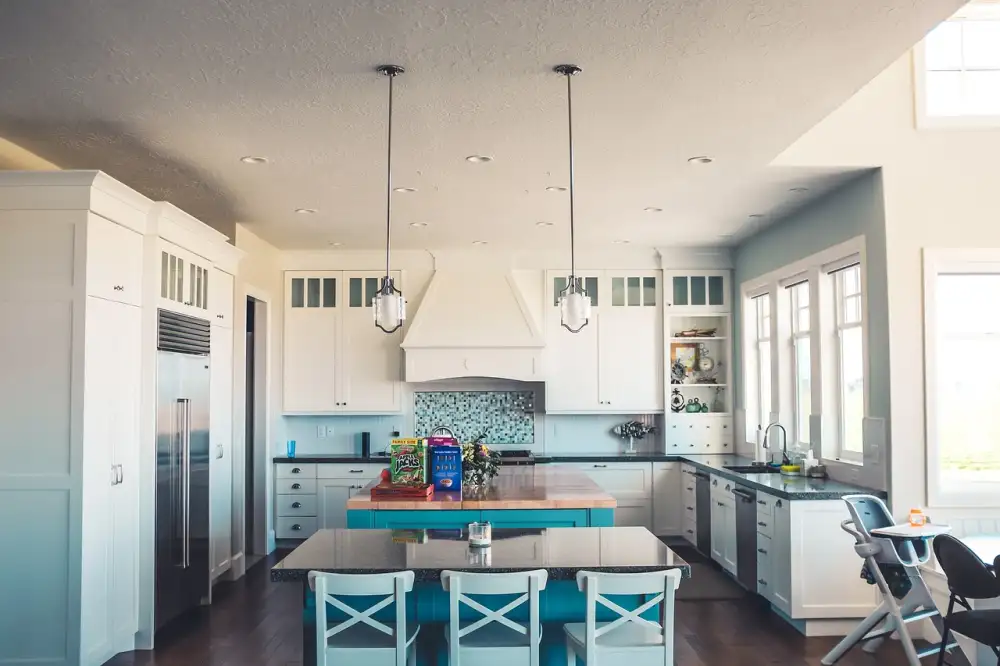Safe and Sustainable: Discover Non-Toxic Kitchen Appliances for a Healthier Home

- Importance of Choosing Non-Toxic Appliances for a Healthy Home
- Common Harmful Substances Found in Conventional Kitchen Appliances
- Benefits of Using Non-Toxic Kitchen Appliances
- How to Identify Non-Toxic Kitchen Appliances
- Top Non-Toxic Kitchen Appliance Brands
- Tips for Maintaining Non-Toxic Kitchen Appliances
In today's health-conscious world, the importance of non-toxic kitchen appliances cannot be overstated. These appliances are designed to minimize exposure to harmful chemicals and substances that can leach into our food during the cooking process. By opting for non-toxic kitchen appliances, you are not only safeguarding your health but also contributing to a more sustainable environment. From cookware to small kitchen gadgets, there is a wide range of non-toxic options available on the market that can help you create a healthier home for you and your family.
Importance of Choosing Non-Toxic Appliances for a Healthy Home
When it comes to creating a healthy home environment, choosing non-toxic kitchen appliances is crucial. Conventional appliances often contain harmful substances like lead, mercury, and phthalates, which can leach into food and air, posing serious health risks. By opting for non-toxic appliances, you can reduce exposure to these toxins and safeguard your family's well-being. Investing in non-toxic kitchen appliances is a proactive step towards promoting a healthier lifestyle and ensuring the safety of your loved ones.
Common Harmful Substances Found in Conventional Kitchen Appliances
Common harmful substances found in conventional kitchen appliances include Bisphenol A (BPA) in plastic containers and linings of cans, which can leach into food and disrupt hormone function. Perfluorooctanoic acid (PFOA) is present in non-stick cookware and can release toxic fumes when overheated. Phthalates are often used in PVC products like flooring and can migrate into food when in contact. Lead, a neurotoxin, may be found in older ceramic dishes or crystal glassware, posing health risks if ingested over time. These substances have been linked to various health issues, emphasizing the importance of choosing non-toxic alternatives for a healthier home.
Benefits of Using Non-Toxic Kitchen Appliances
When you choose non-toxic kitchen appliances, you are safeguarding your health and the environment. These appliances are free from harmful chemicals like BPA, lead, and phthalates that can leach into your food and cause long-term health issues. By using non-toxic appliances, you reduce your exposure to these toxins, promoting a healthier living environment for you and your family. Additionally, non-toxic appliances are often more energy-efficient, helping you save on electricity bills while reducing your carbon footprint.
How to Identify Non-Toxic Kitchen Appliances
When looking to identify non-toxic kitchen appliances, there are a few key factors to consider. Firstly, check for certifications such as Energy Star, UL Environment, or NSF International which indicate that the appliance meets specific health and safety standards. Look for appliances made from materials like stainless steel, glass, or ceramic coatings which are known to be non-toxic. Avoid products containing harmful substances like BPA, phthalates, lead, and PVC. Reading product labels and researching manufacturers' transparency regarding materials used can also help in identifying non-toxic options for a healthier home.
Top Non-Toxic Kitchen Appliance Brands
When it comes to choosing non-toxic kitchen appliances, there are several reputable brands that prioritize safety and sustainability. Some of the top brands known for their non-toxic offerings include Bosch, KitchenAid, Miele, and GE Appliances. These brands have a strong commitment to producing appliances that are free from harmful chemicals such as BPA, lead, and phthalates. By opting for products from these trusted brands, consumers can ensure that their kitchen appliances are not only safe for their health but also environmentally friendly.
Tips for Maintaining Non-Toxic Kitchen Appliances
1. Regular Cleaning: Clean appliances with non-toxic cleaners to prevent chemical residue buildup.
2. Avoid Harsh Chemicals: Refrain from using harsh chemicals that can leave toxic residues on surfaces.
3. Check Seals and Gaskets: Ensure seals and gaskets are intact to prevent leaks of harmful substances.
4. Proper Ventilation: Adequate ventilation in the kitchen helps reduce indoor air pollution from appliances.
5. Follow Manufacturer's Instructions: Adhere to the manufacturer's guidelines for maintenance and cleaning to prolong appliance lifespan.
6. Schedule Inspections: Periodically inspect appliances for any signs of wear or damage that could lead to toxic exposure.
7. Dispose Responsibly: When replacing appliances, dispose of old ones properly to prevent environmental contamination.
By following these tips, you can maintain your non-toxic kitchen appliances effectively, ensuring a healthier environment for you and your family.
In conclusion, making the switch to non-toxic kitchen appliances is a crucial step towards creating a healthier home environment. By opting for appliances free from harmful substances like BPA, lead, and phthalates, you can safeguard your family's health and well-being. These appliances not only reduce the risk of exposure to toxins but also contribute to sustainable living practices. Investing in non-toxic kitchen appliances is not just a choice for today, but a commitment to a healthier future for both your loved ones and the planet. Start your journey towards a safer and more sustainable lifestyle by choosing non-toxic kitchen appliances today.
Published: 28. 03. 2024
Category: Home



